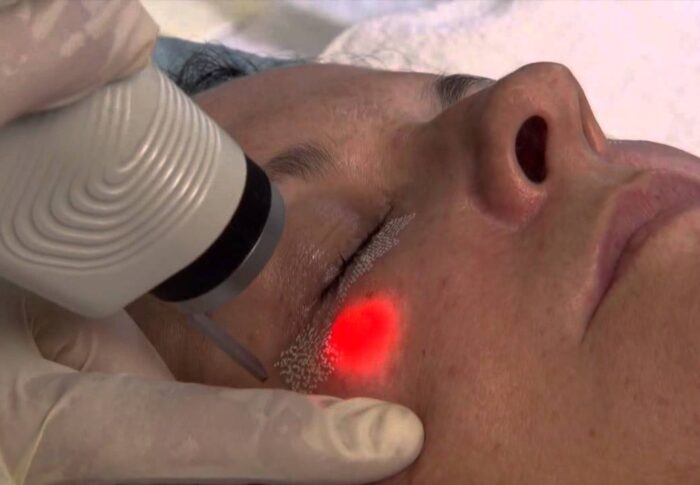
What is paradoxical sleep in psychology?
What is paradoxical sleep in psychology? This sleep-related phenomenon occurs in about 5% of people, and it is both puzzling and distressing for both you and other people. The cause may be an over-aware sleep cycle or an out-of-balance perception of time. The good news is that paradoxical sleep deprivation can be effectively treated. To learn more about paradoxical sleep, read this article!
REM sleep
The term “paradoxical intention” is overused in the field of sleep medicine, but it is indeed useful to understand the concept of REM sleep, or rapid eye movement sleep. This stage of sleep occurs when the brain is active and the body is inactive, and researchers believe that paradoxical intentions can help patients deal with insomnia. In fact, paradoxical intention has been shown to be effective and free from any side effects, making it a great tool for treating insomnia.
REM sleep, also known as rapid eye movement sleep, is a phase of sleep characterized by rapid eye movement and brainwave activity similar to that seen in awakened subjects. It is a paradoxical sleep because it produces dreams and is associated with enhanced brain activity. Aserinsky and Kleitman discovered, people’s EEGs show similar patterns of activity during REM sleep, and the rapid eye movements are a result of the increased brain activity.
REM sleep is distinct from other stages of sleep, and the brain activity during this stage is significantly higher than in non-REM sleep. While non-REM sleep is an inert state, REM sleep is highly active, with increased heart rate and breathing. As a result, attempts to enter REM sleep are measured and analyzed. In addition to its unique properties, REM sleep is also associated with a specific type of dreaming known as lucid dreaming.
A similar model has been proposed by Michael Jouvet in 1981. In his study, he found that acetylcholine manifests in the cortex equally in both REM sleep and non-REM sleep. Moreover, removing GABA and Orexin, two excitatory neurotransmitters, may explain the absence of either. Further, positron emission tomography (PET) has been used to confirm the central role of the brain stem. REM sleep also appears to be connected with emotion.
Research on REM sleep in humans and rats has also revealed a complex interaction between the two phases of sleep. The interactions between the two phases of sleep also reveal how homeostasis regulates the amount of REM sleep. The homeostatic pressure in the absence of REM sleep is caused by a homeostatic process which builds up and dissipates pressure during the short and long periods of REM sleep.
Paradoxical sleep deprivation
Research into the benefits of sleep has identified a paradox in psychology – the inability to fall asleep despite exerting effort to do so. People suffering from paradoxical insomnia misjudge when they are ready to fall asleep and wake up. They feel sleep deprived despite observing their surroundings during sleep. Fortunately, melatonin and prescription sleep drugs containing diphenhydramine can help counter these symptoms.
REM sleep, also known as rapid eye movement sleep, occurs later in the sleep cycle, which means that a person experiencing paradoxical sleep deprivation will likely experience a greater risk of obesity or chronic conditions. It is important to note that most REM sleep occurs in the last few minutes of the sleep cycle and that people with high stress levels and some types of sleep disorders may be experiencing loss of this stage of sleep.
Those experiencing insomnia may want to consider using a method known as paradoxical intention. Using a technique called paradoxical intention, it is designed to reduce the anxiety that can interfere with sleep. It involves lying quietly in bed, free from distractions, and refraining from activities that could disrupt sleep. This method has been shown to be effective, although more research is needed to confirm its effectiveness. If you are concerned about a sleep problem, consult a doctor. A physician can help you determine if a problem exists, order tests, and develop a sleep strategy for you.
The name paradoxical sleep derives from the fact that the brain’s REM state is important for cognitive function. In animals, rats can suffer from lethal effects when they are deprived of REM sleep. This lethality is believed to be related to the stress induced by repeated arousals. Neither mice nor cats have shown these lethal effects. The paradoxical nature of REM sleep makes it a fascinating subject in psychology.
Tonic features of REM sleep
The tonic features of REM sleep have been described as distinct from phasic REM sleep. They consist of brief bursts of eye movements linked to PGO waves and myoclonic twitches in skeletal muscles. While phasic REM sleep is characterized by increased activity in the beta band, tonic REM sleep contains segments of quieter activity in between phasic phases. The latter is considered a more awake state than tonic REM sleep.
Phasic and tonic REM sleep microstates are important for emotional regulation and memory. The imbalance of phasic and tonic REM could contribute to the affective and cognitive symptoms of PTSD. In addition, REM interruptions are associated with sustained amygdalar activity and impaired overnight emotional adaptation. Future studies of tonic and phasic REM sleep should focus on the microstates of REM and how they regulate memory.
The brain uses an alpha band of power during REM sleep to sustain a sensory-motor set. When the alpha band power is low, however, the evoked response is reduced. In contrast, when the alpha band is high, the brain is more responsive to visual and motor imagery, and attentional control improves external processing during tonic periods, but not in phasic states. Tonic REM sleep has been a controversial subject in psychology.
Studies of tonic REM sleep have also shown that evoked potentials are larger in tonic than in phasic REM sleep. In addition, auditory cortex activity increased upon stimulation in wakefulness. This suggests that auditory cortex activity is more active during tonic REM sleep than during phasic REM sleep. A few more studies are needed to confirm these findings. But the differences between the two REM microstates are striking.
The REM phenomena may be intermittent or continuous. EEG recordings have shown tonic features during physiological REM sleep. Low-voltage EEGs and reduced muscle tone are tonic, while intermittent events are associated with rapid eye movements and spike-like electrical activity in vision-related brain regions and the cerebral cortex. The ponto-geniculo-occipital waves are also associated with rapid eye movements and may be part of the REM process.
Psychological effects of paradoxical sleep deprivation
Rapid eye movement (REM) sleep, also known as paradoxical sleep, is a common form of sleep that combines periods of active brain activity with periods of deep sleep. The concept of paradoxical sleep is based on studies of a French researcher who was interested in the brain’s role in initiating muscle atonia during REM sleep. Lesions to the brainstem led to loss of muscle atonia, and the cats appeared to act out their dreams.
In addition to its calming effects, paradoxical sleep deprivation may have a negative effect on the amygdala, the brain area associated with emotion. Consequently, those who suffer from sleep deprivation have heightened responses to negative stimuli and a lower mood. In addition, sleep debt decreases the medial prefrontal cortex’s ability to suppress the amygdala’s activity, leading to emotional instability.
Although it may seem implausible, there are several factors that contribute to paradoxical insomnia. The brain’s activity reorganizes during these periods. Parasomnias result in excessive daytime sleepiness, disruptive behavior, and potentially violent activities. Although the prevalence of these disorders is unknown, these conditions are often caused by psychological or physical disorders. There is no cure for paradoxical insomnia, but it is not a cause for alarm.
Although there is little published data on the relation between insomnia and depression, the associations are intriguing. Insomnia increases the risk of major depression by five-fold and panic disorder by 20-fold. However, there are no definitive studies to support this theory. Further research will help determine whether there is a link between sleep deprivation and depression. When properly conducted, the association between sleep loss and depression can be profound.






